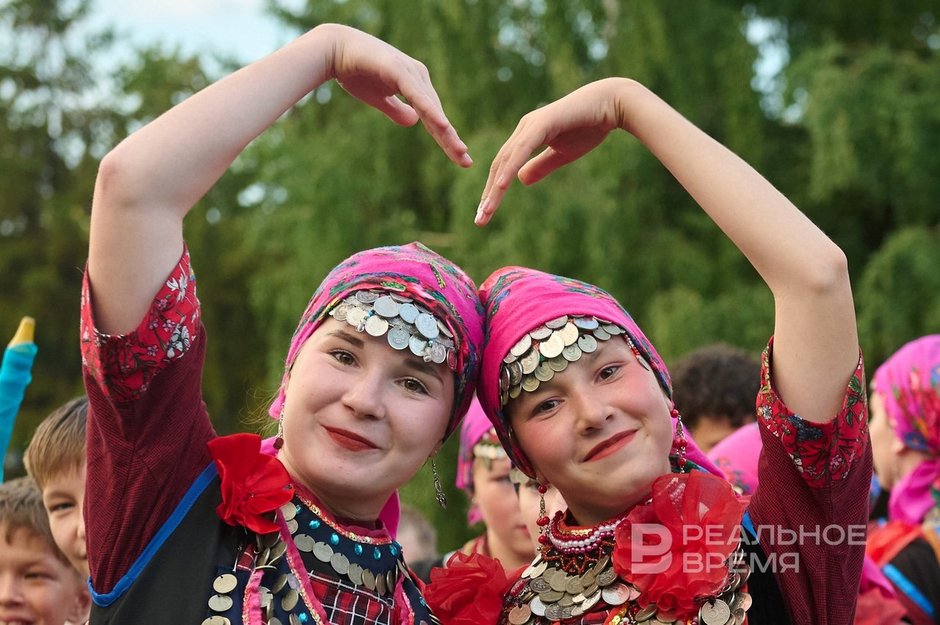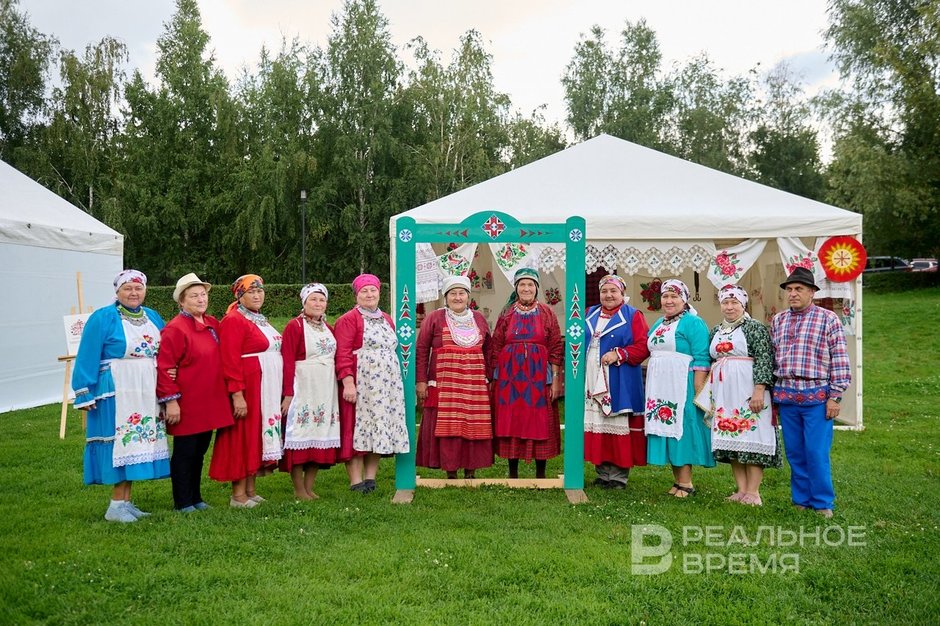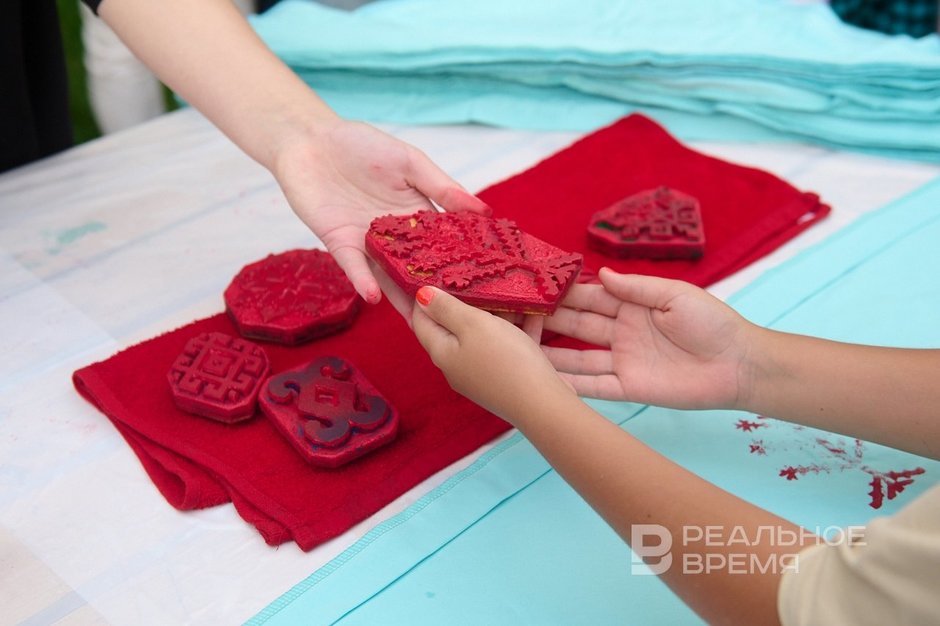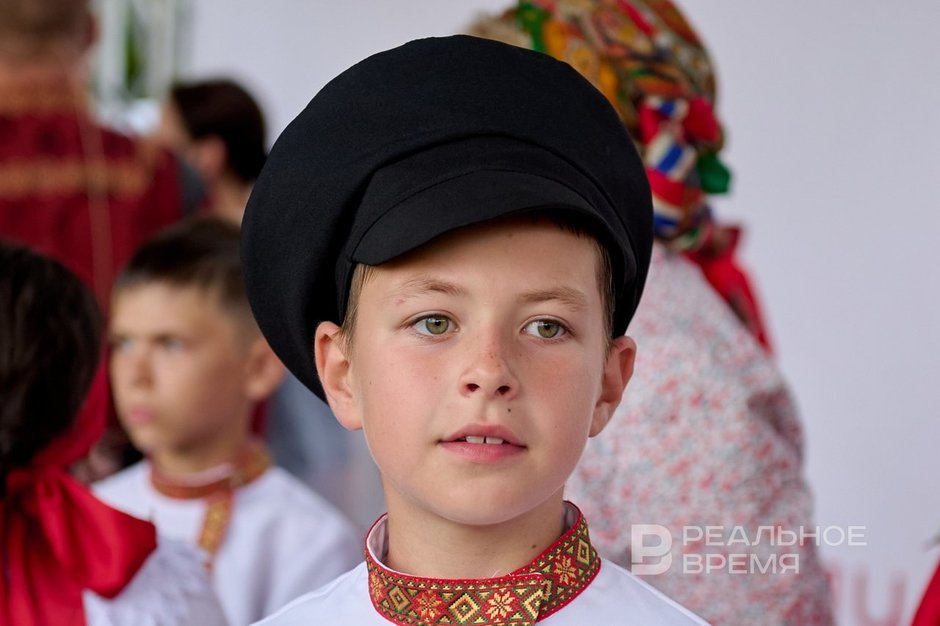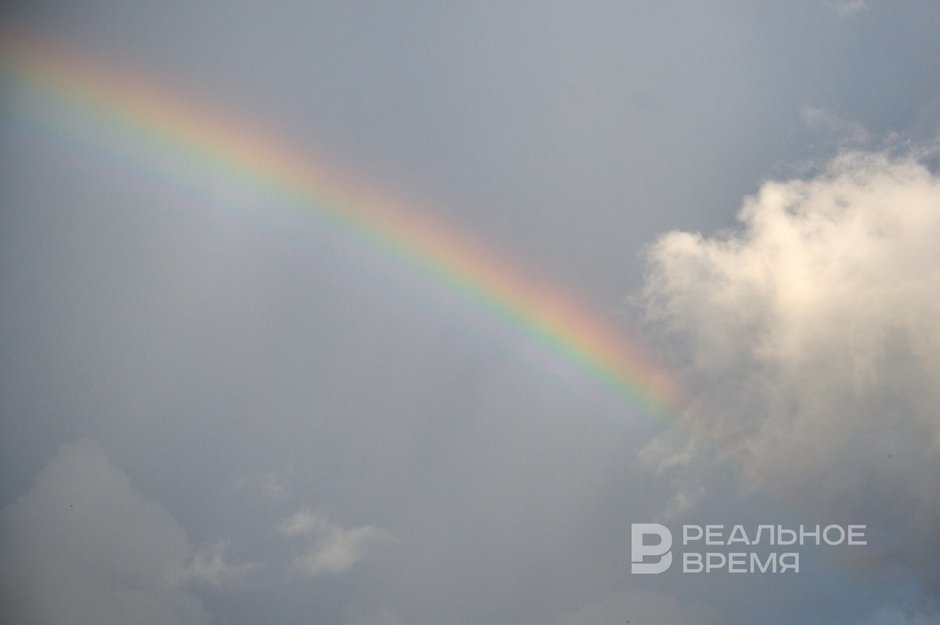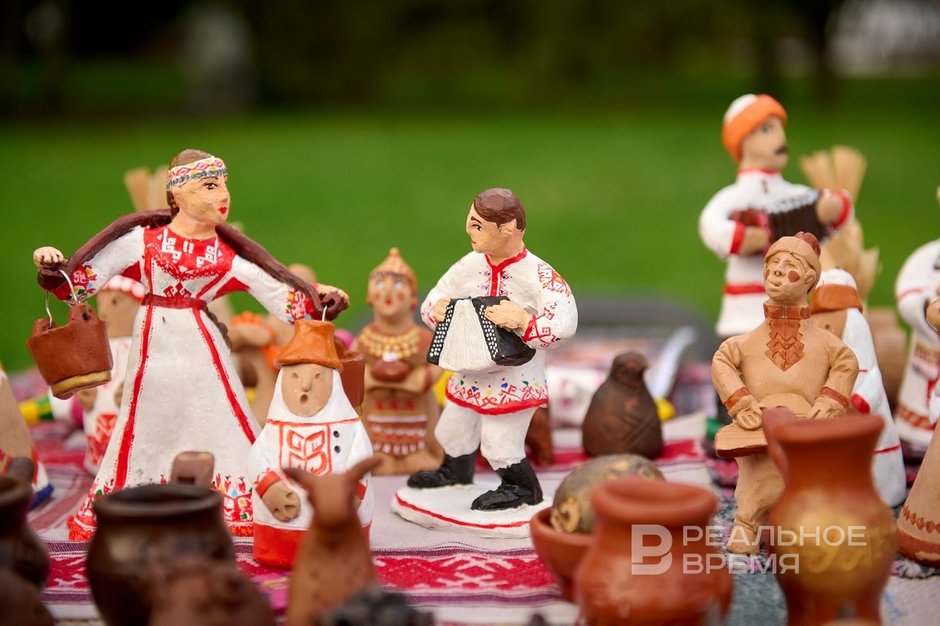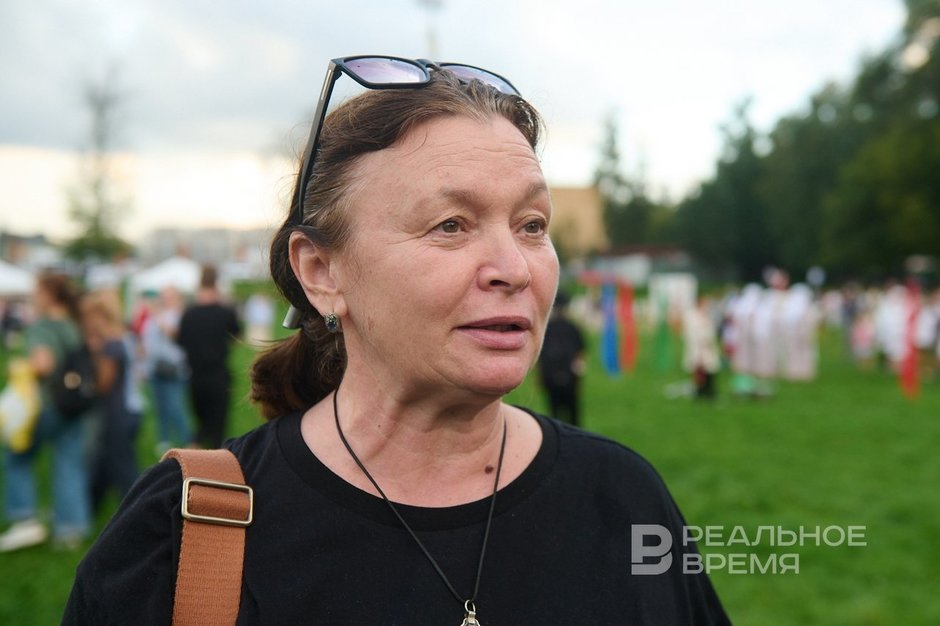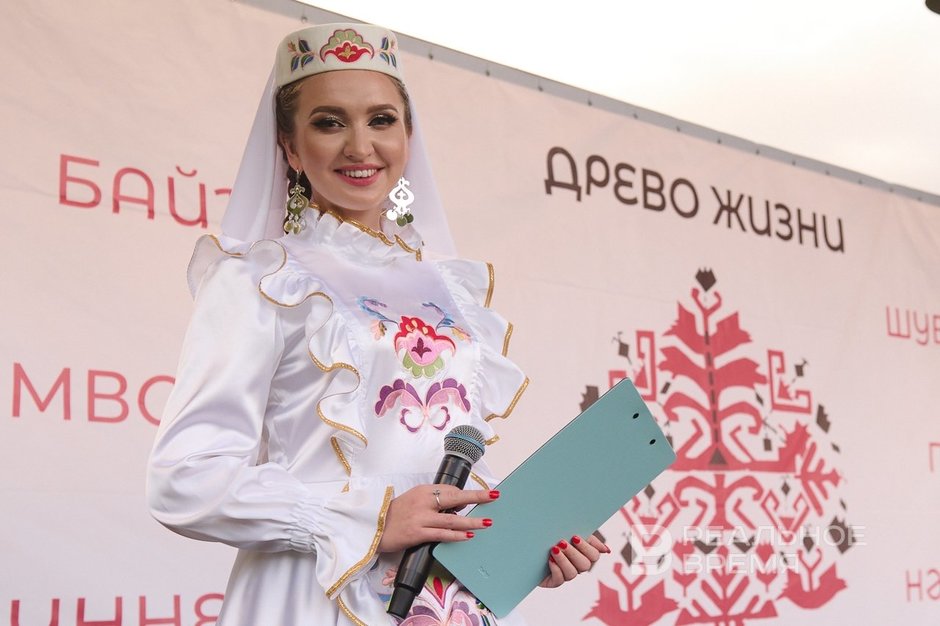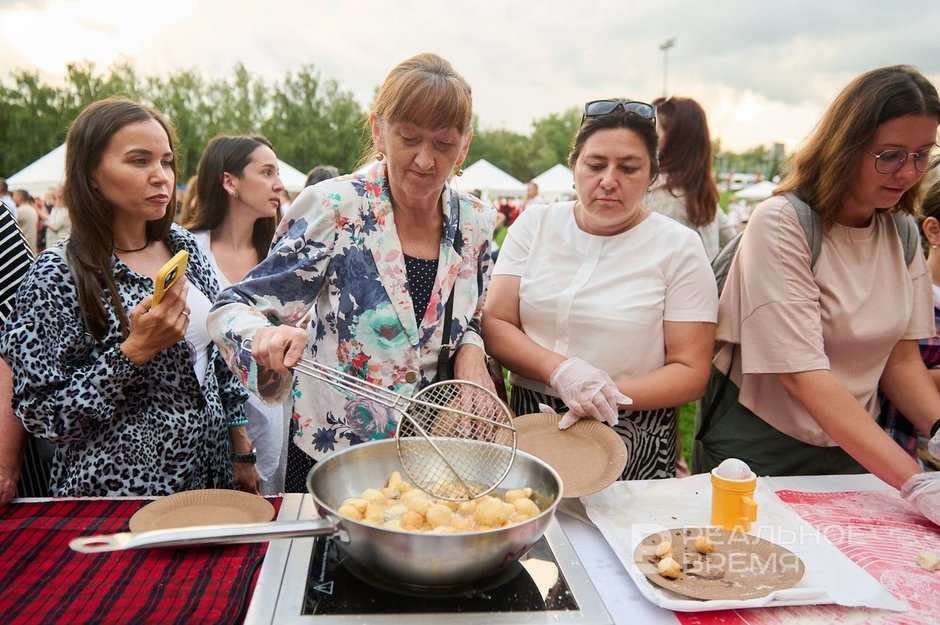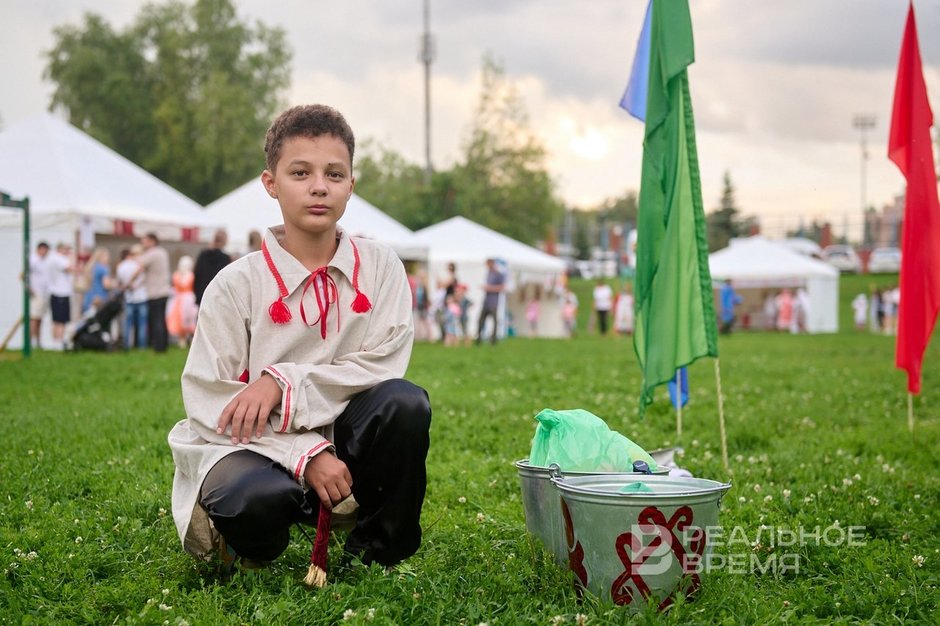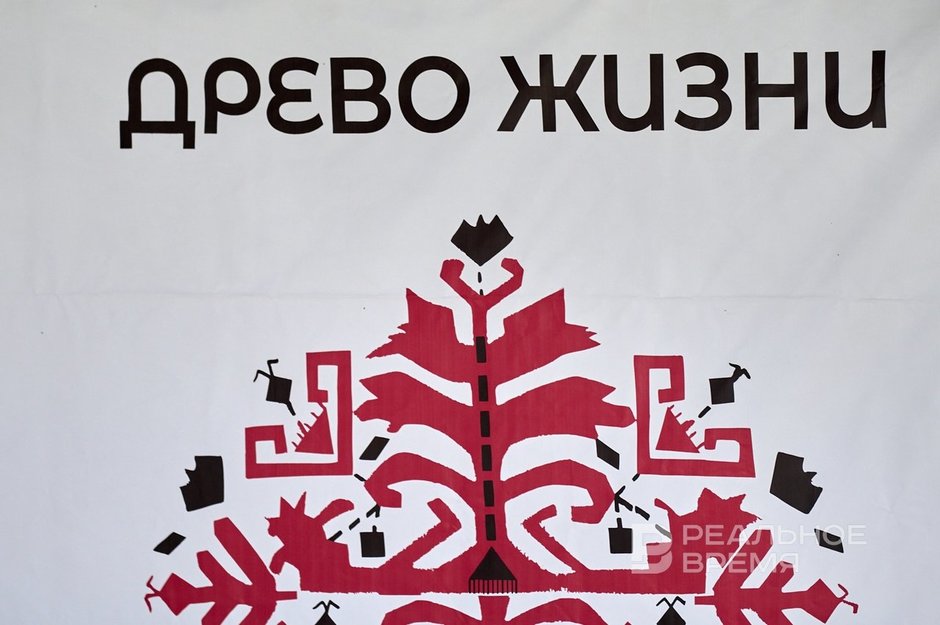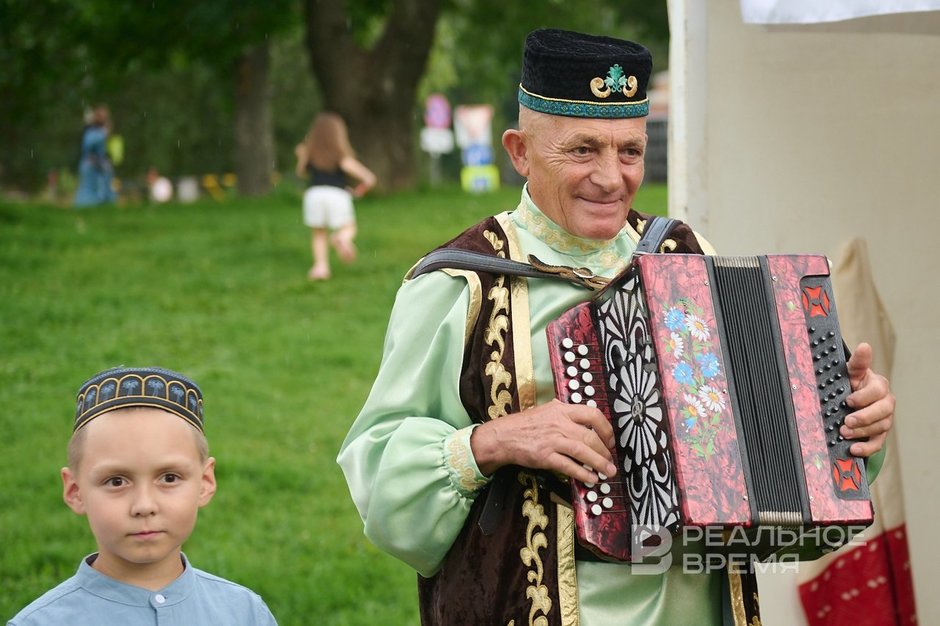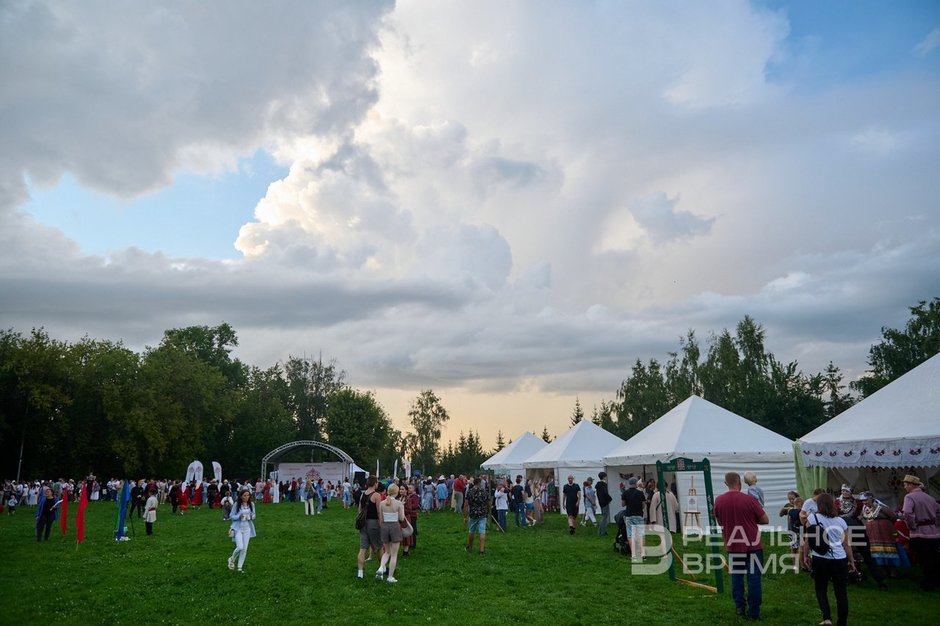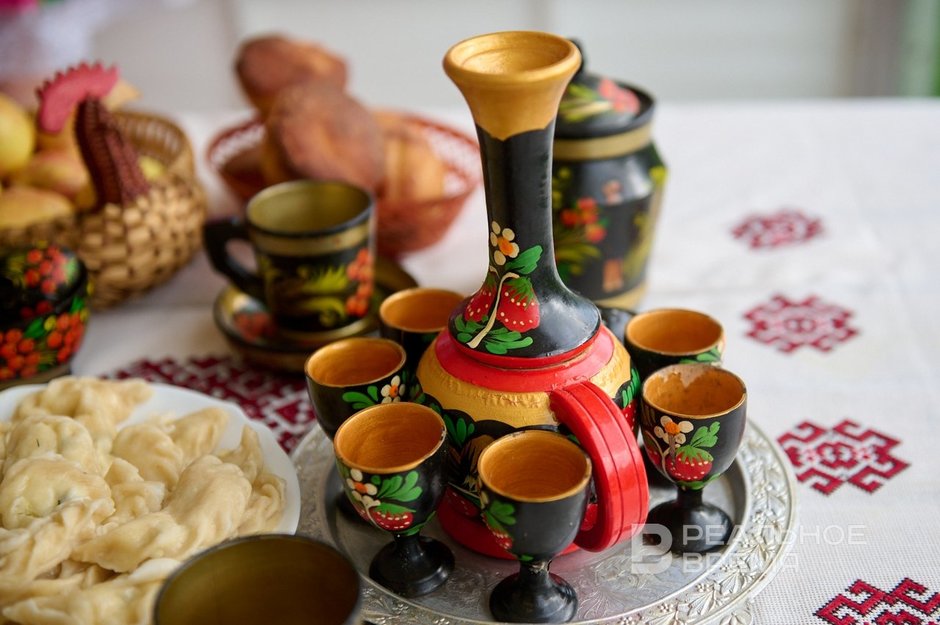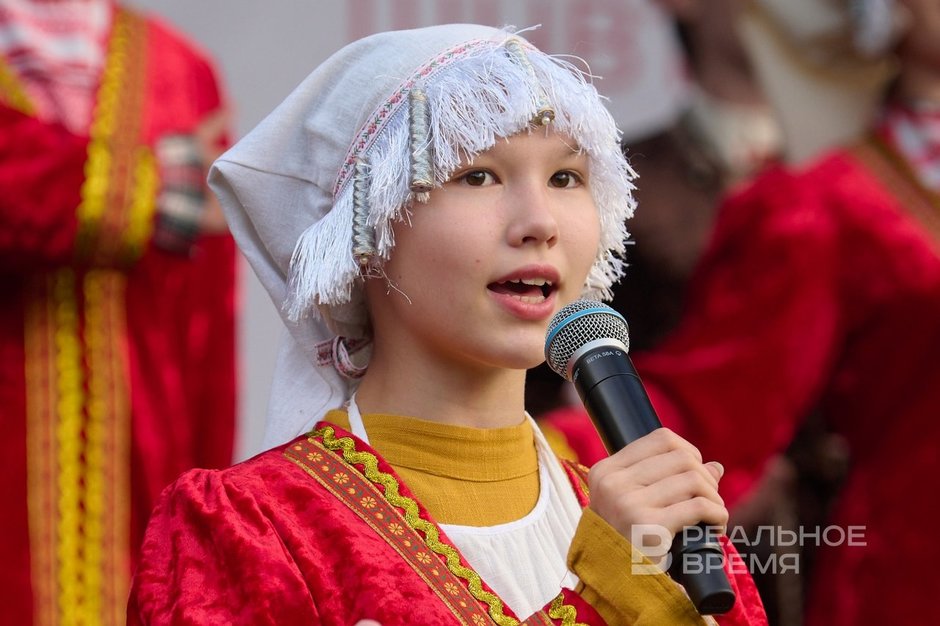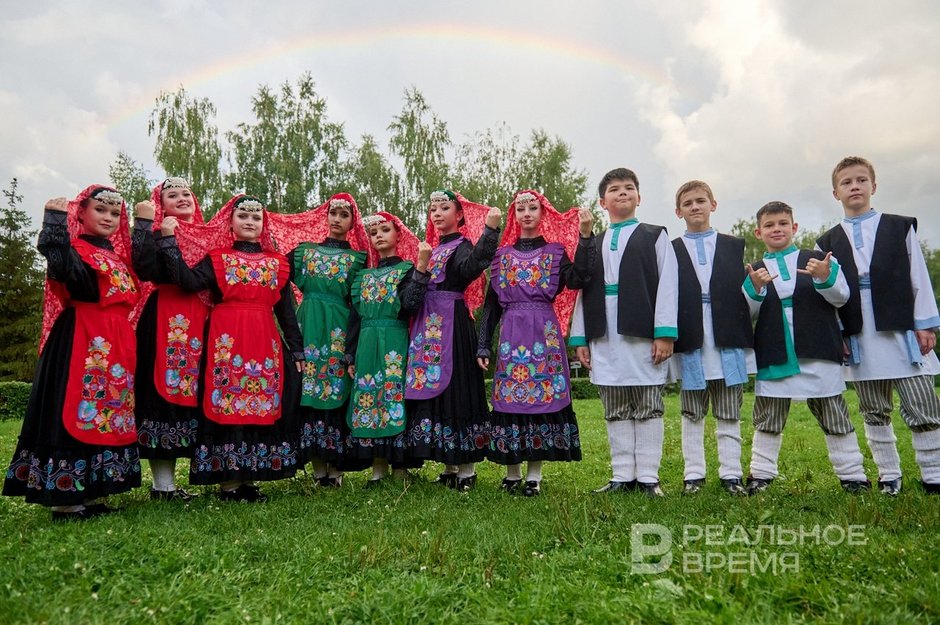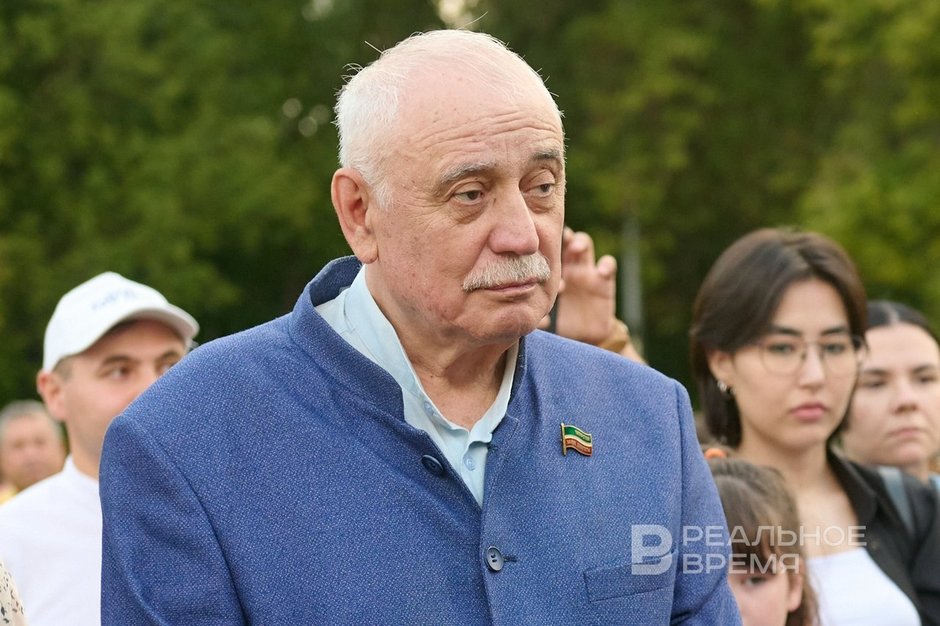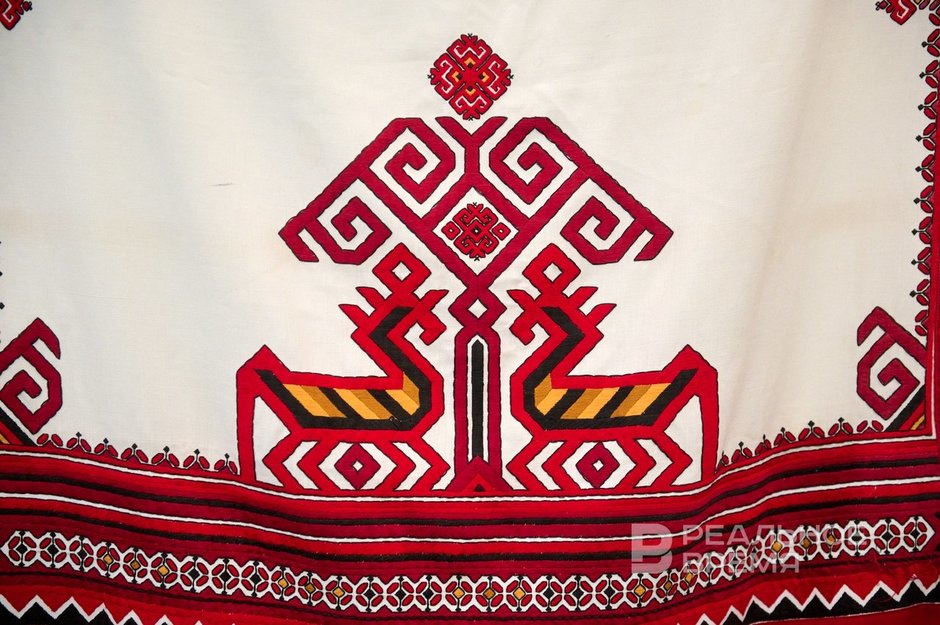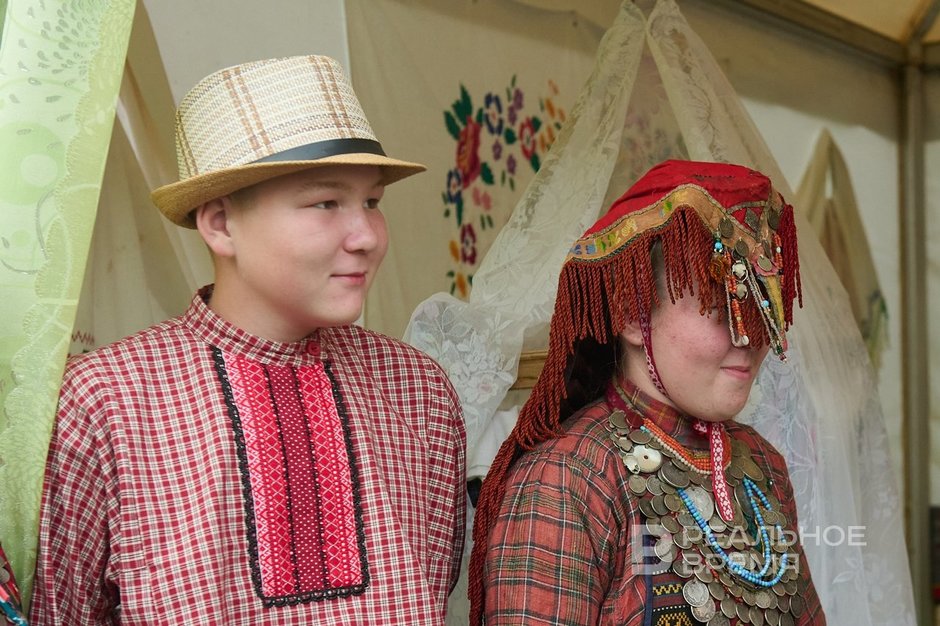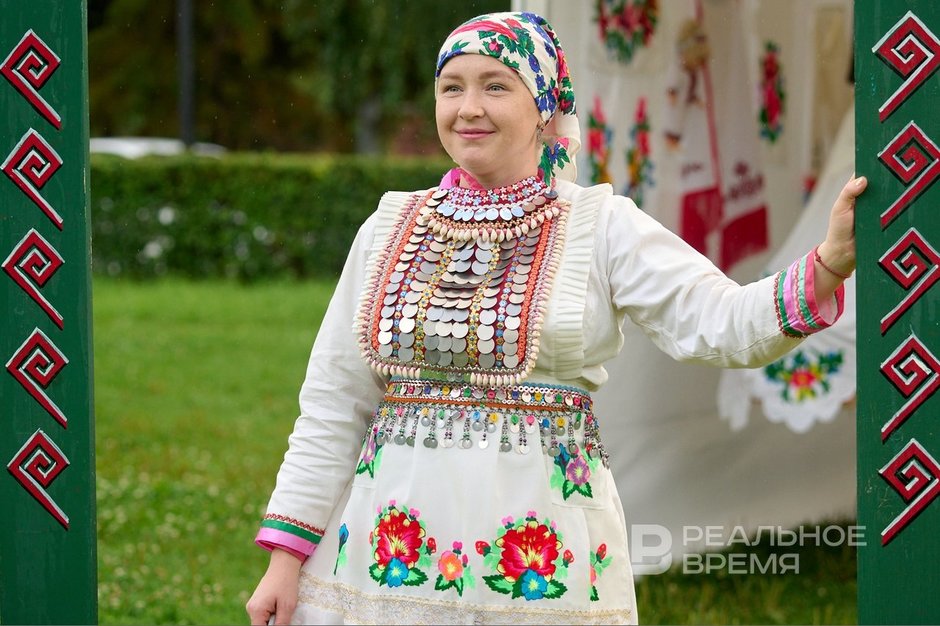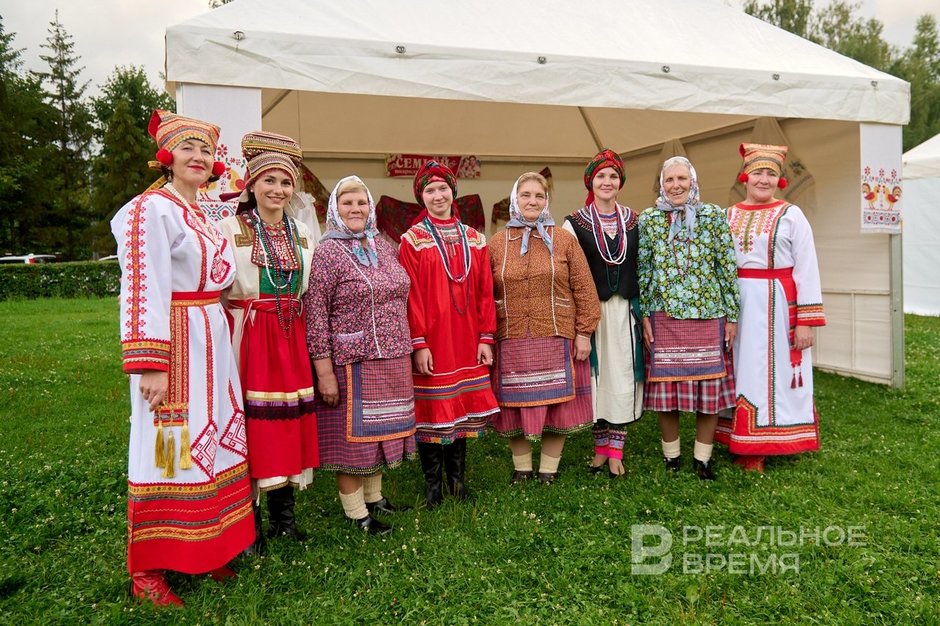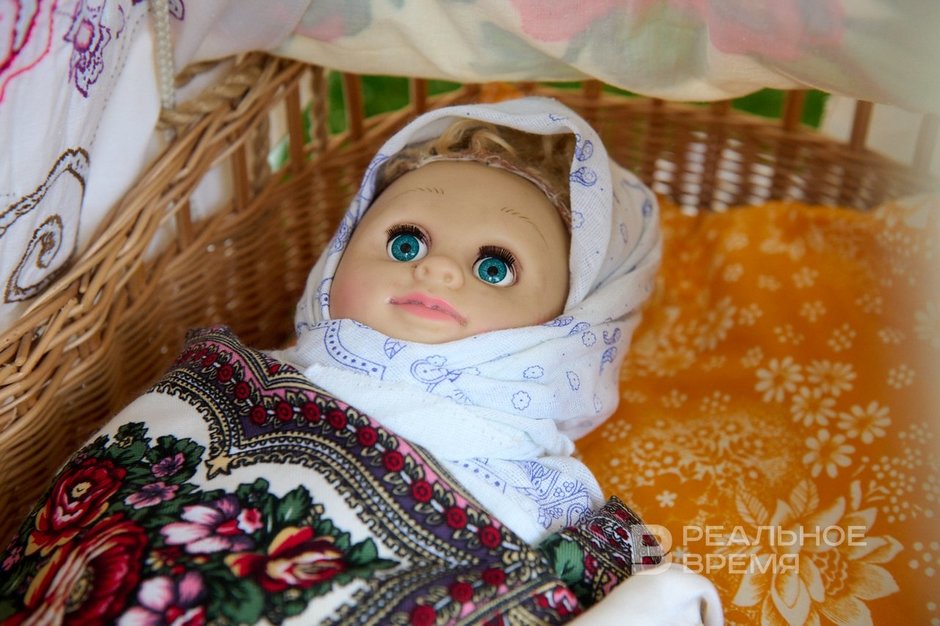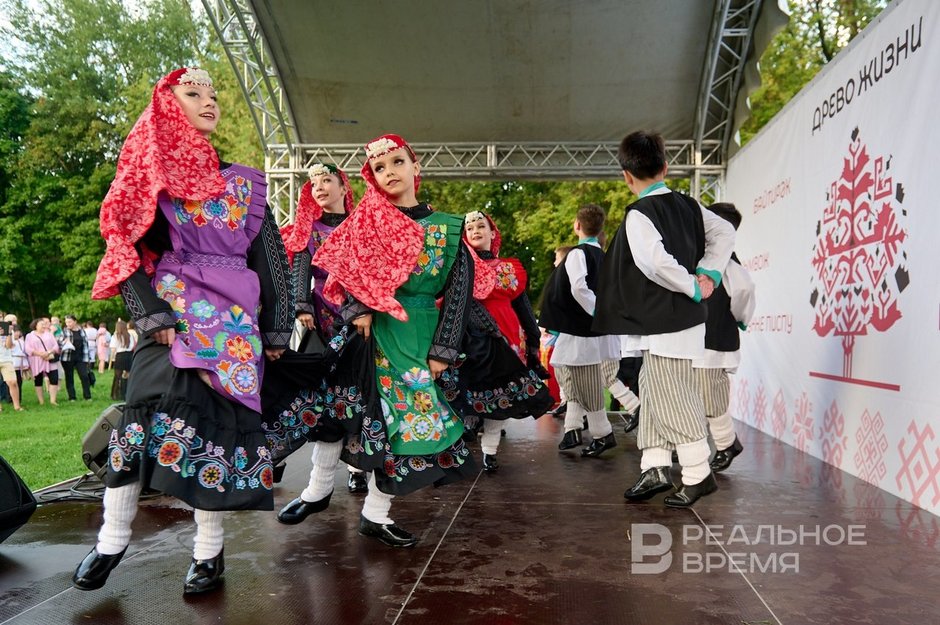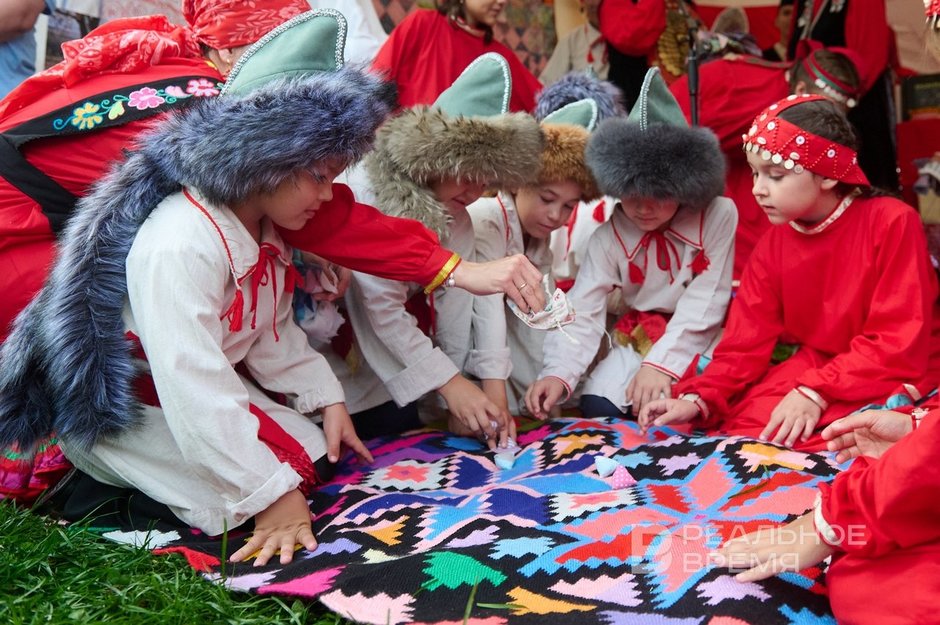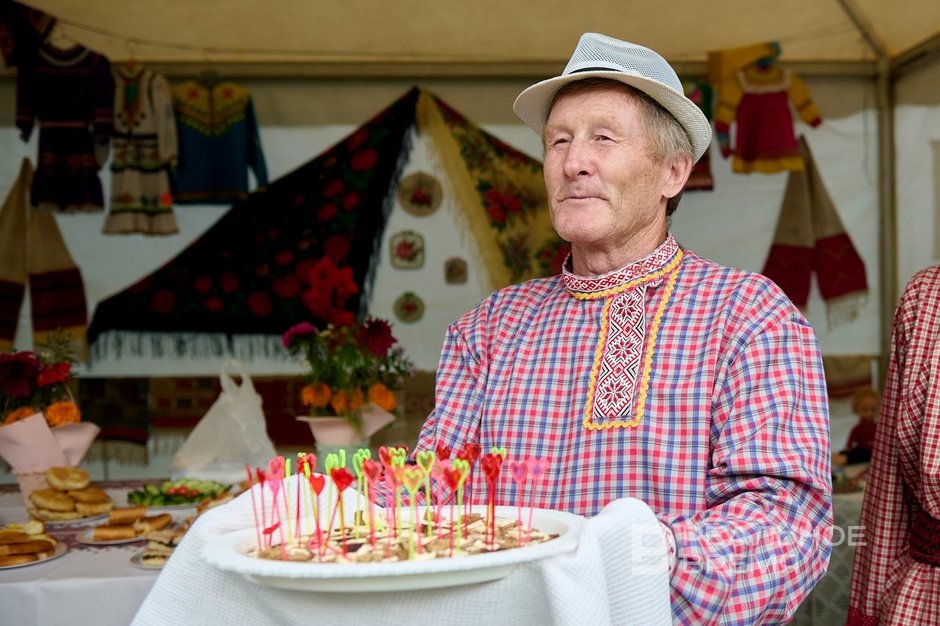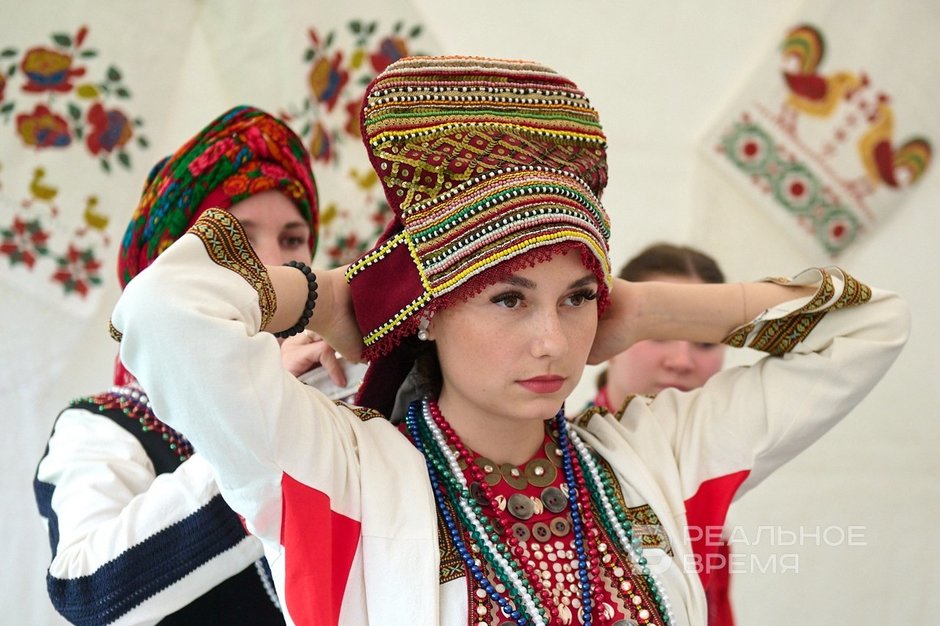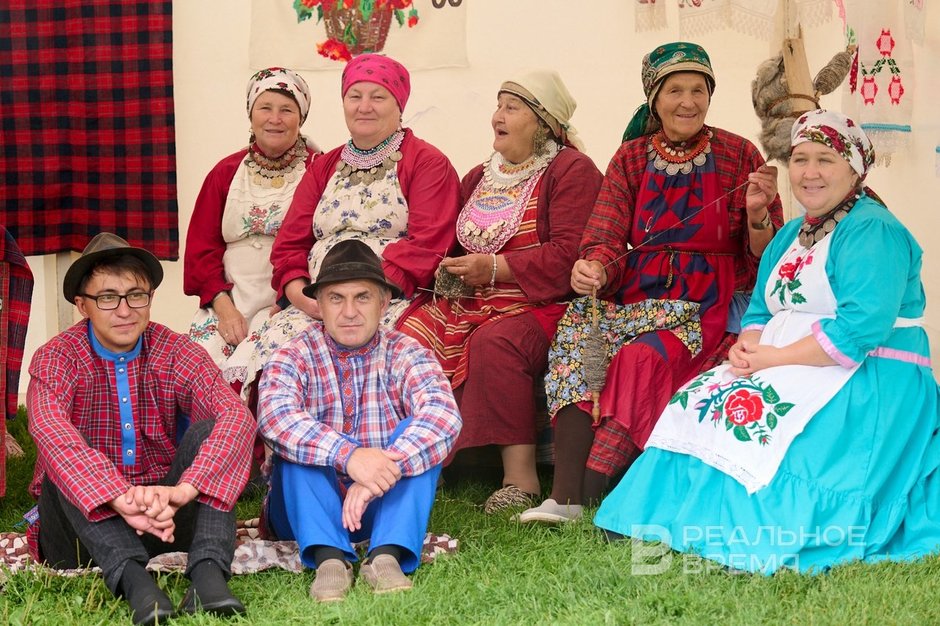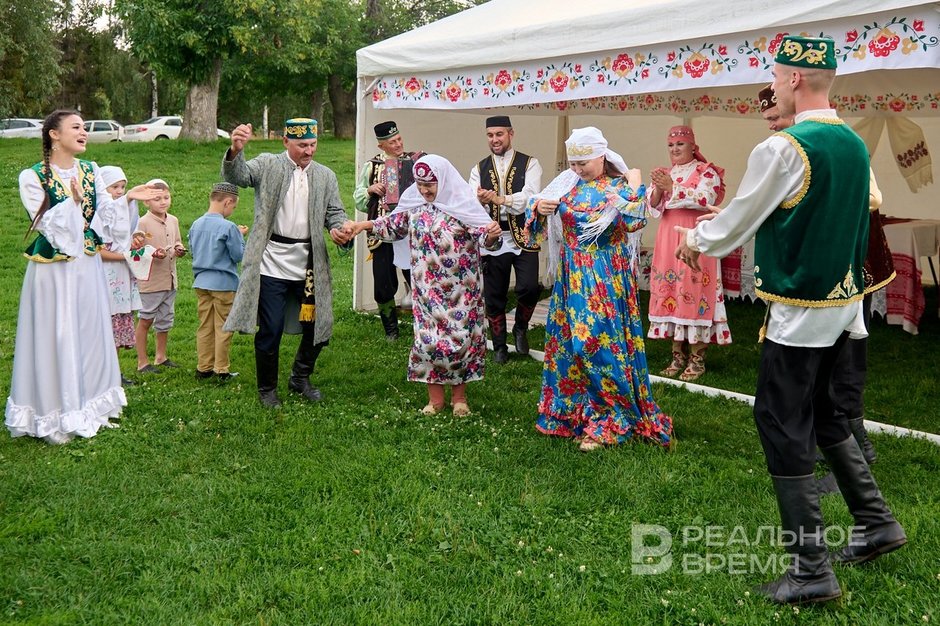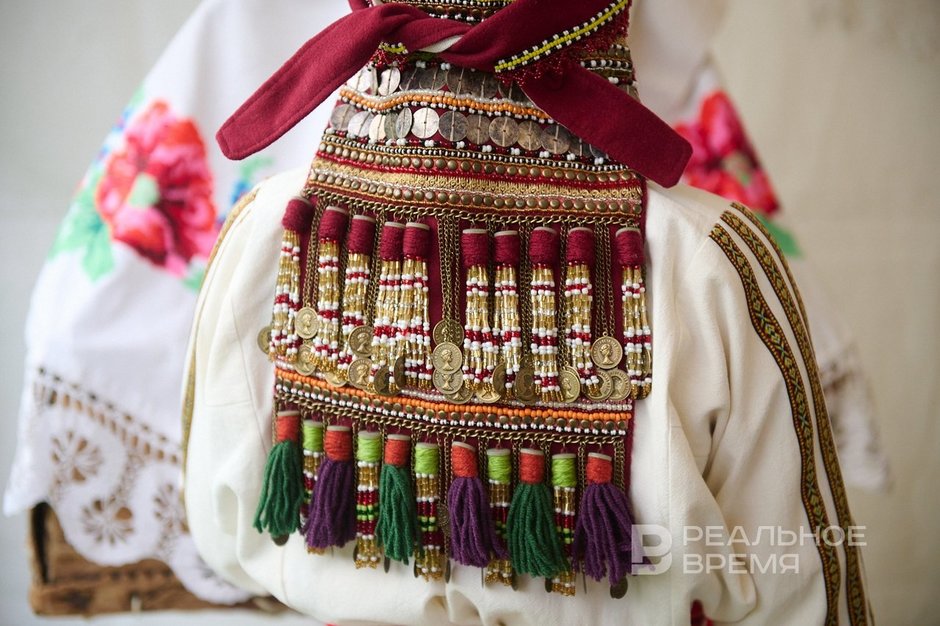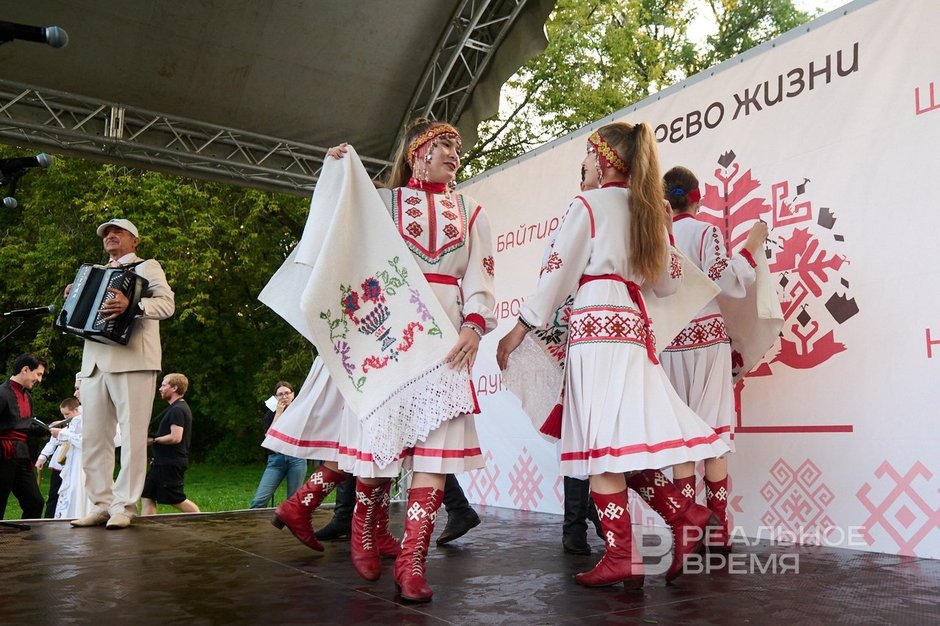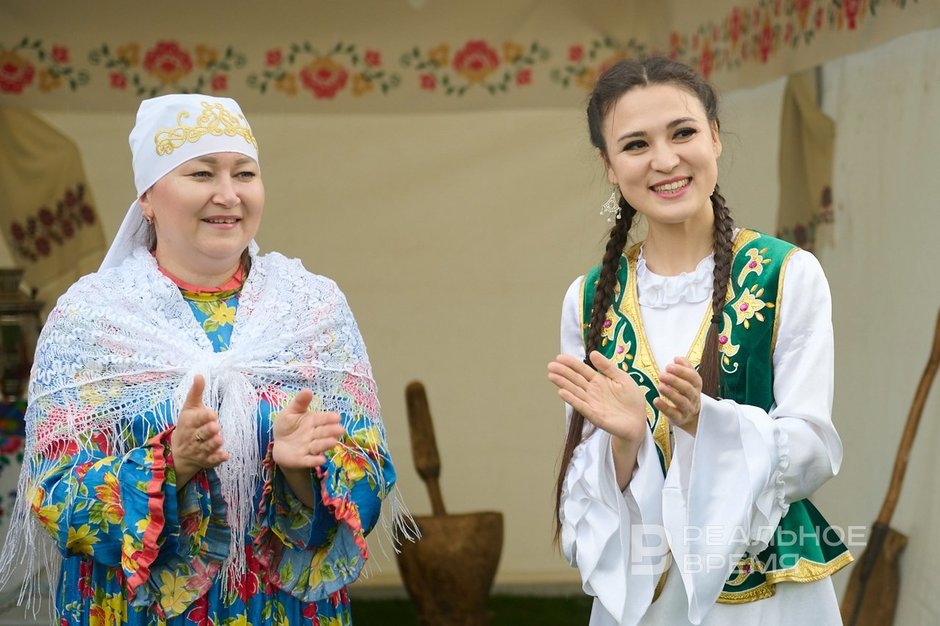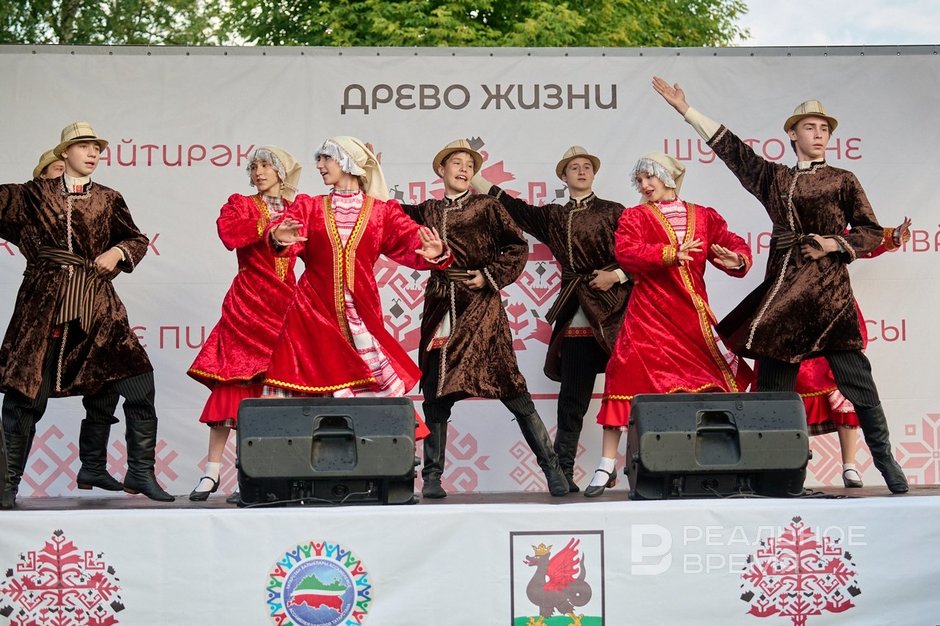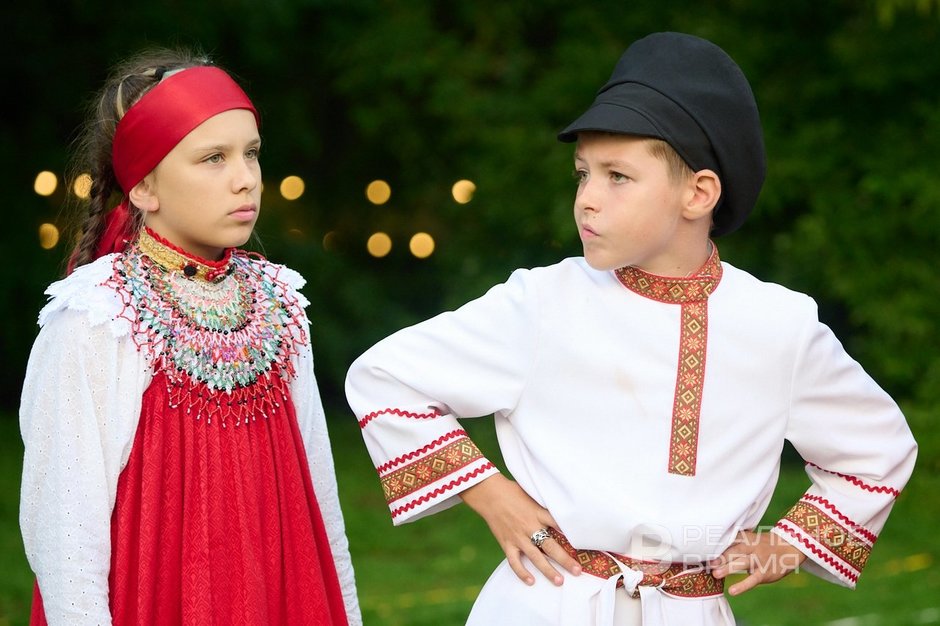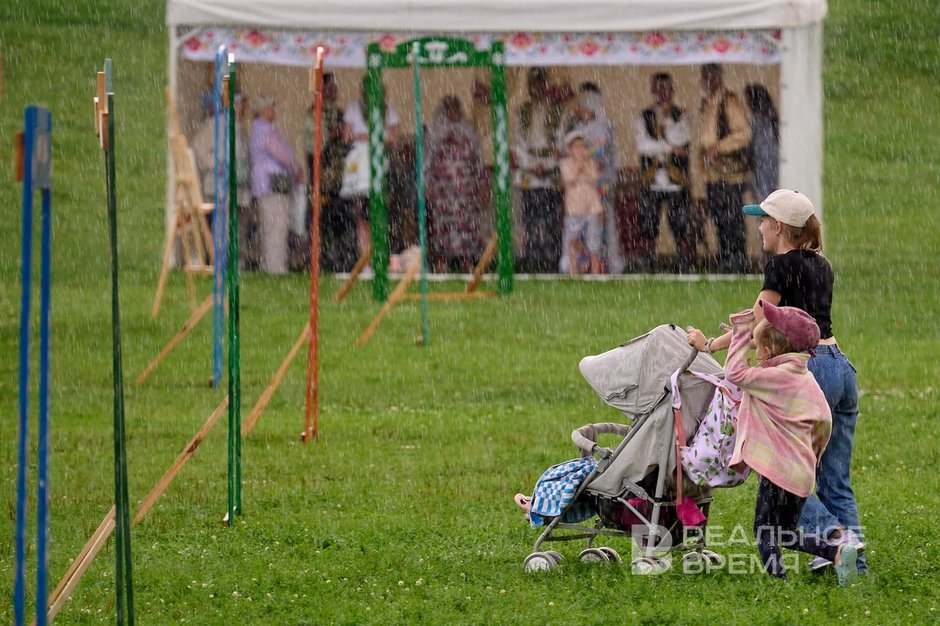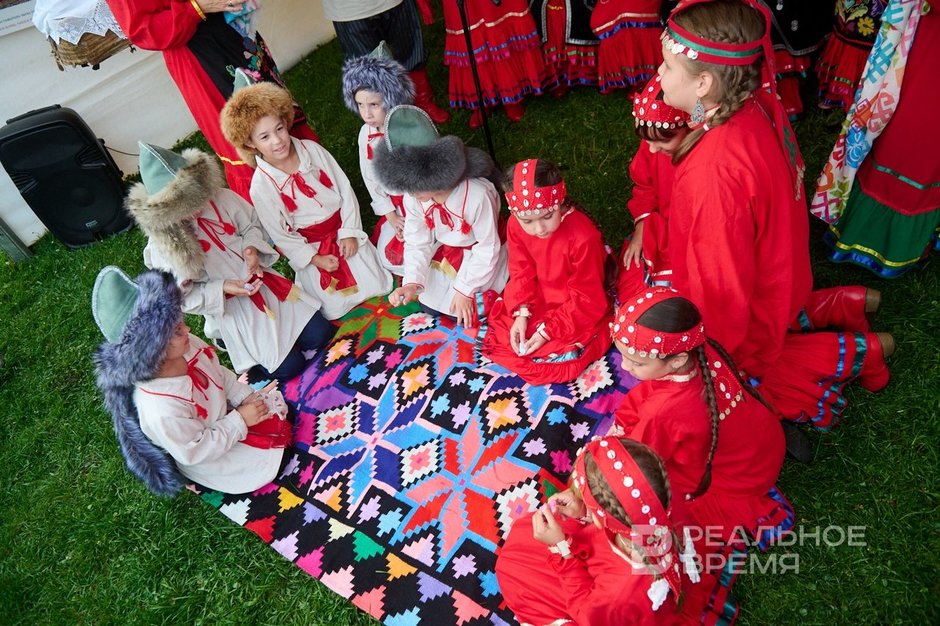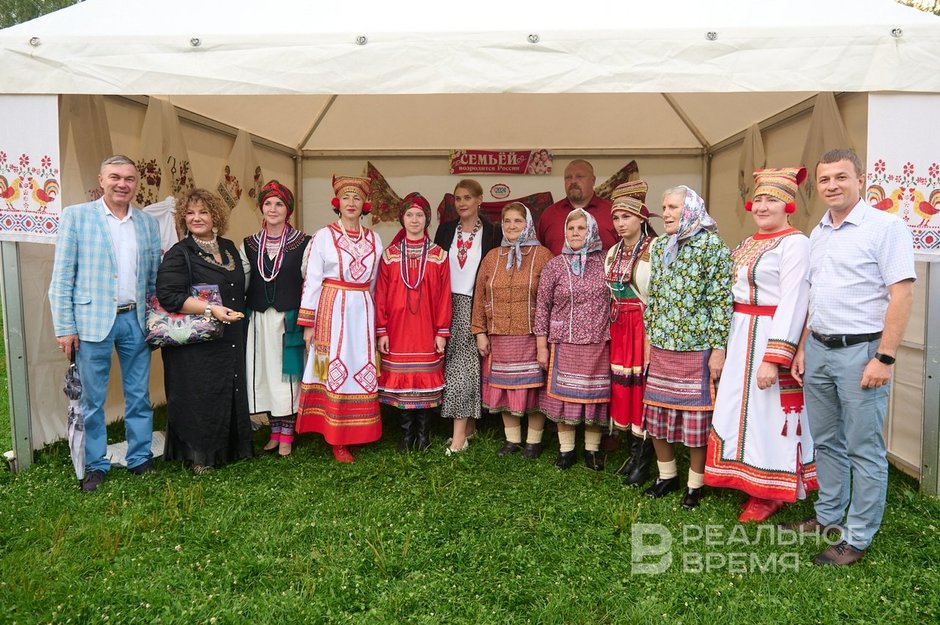How the republic’s kids were distracted from gadgets
Rituals associated with children of the peoples of Tatarstan were shown in Gorky Park
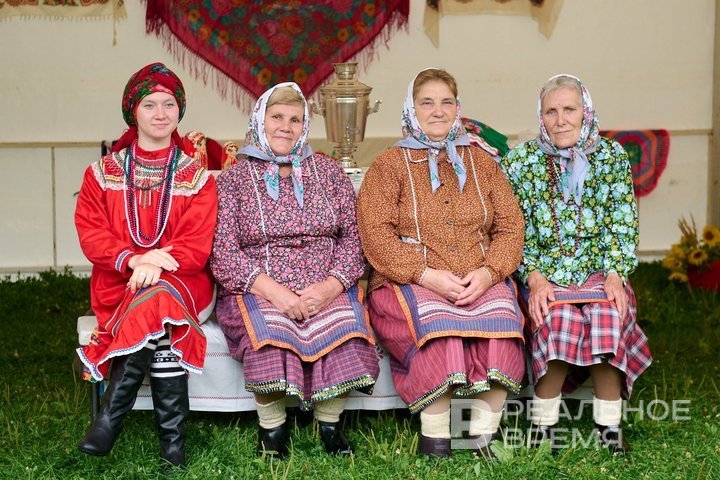
Tree of Life holiday is back to Gorky Park. After showing some wedding rituals of the peoples of Tatarstan in early July, its organisers moved on to the next important stage in the life of a young family — the birth and upbringing of children. A younger generation of the republic’s residents dominated at the event; neither the rain nor the shortage of places in the master classes prevented them from having fun. Read more details about it in a report of Realnoe Vremya.
First bedtime, first bath, first blanket
This time, officials headed by the Chairman of the Tatarstan State Council’s Committee for Education, Culture, Science and National Issues Ayrat Zaripov and head of the Department of Culture of the Executive Committee of Kazan Azat Abzalov were the dear guests who were taken to the tents of the peoples.
The journey began with a Tatar rite named Being Happy for Having a Baby, that is, gifting to the one who was the first to notify the house about the birth of a child. The rite is generally a common tradition among Turkic peoples.
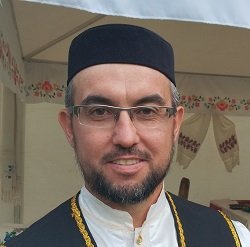
“I remember that in the 60-80s this was a popular ritual. We ran, even if we knew that someone had already reported it. Anyway, they said, the children would not be left without candy. We knew when a lad would return from the army, we would watch for him at the edge of the village,” noted Science Director of Tree of Life project Fanzilya Zavgarova.
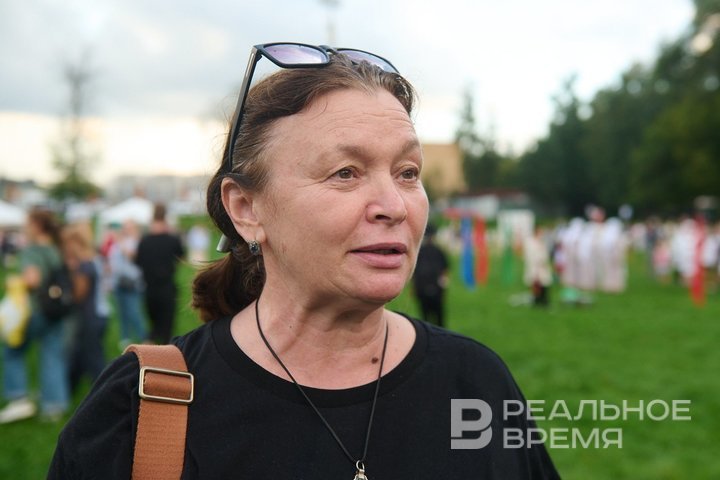
Kryashens from Kryash-Serdy village (Pestretsy District, Tatarstan) demonstrated the ritual of putting a child in a cradle for the first time. This is done by the grandmother on the mother’s side. In the Russian courtyard, you could look at toys. Chuvash people from Nurlat District showed what the naming ritual was. Udmurts from Kukmor demonstrated a visit that is held on the 40th day after birth.
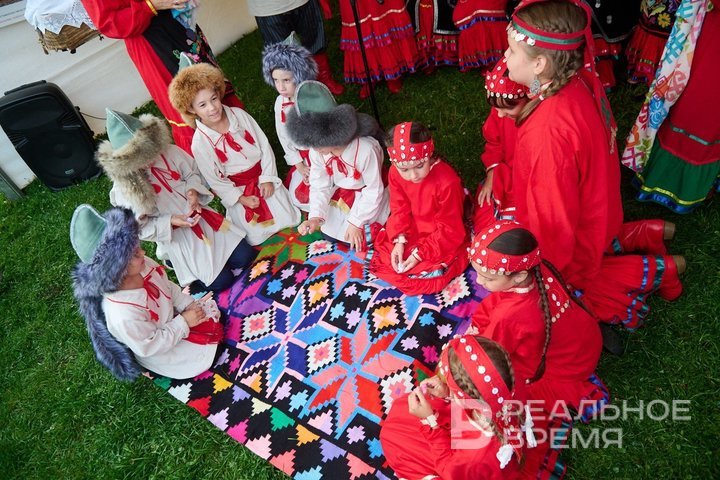
The Mari people talked about another rite — this is the first bathing of a baby in Russian sauna (it is also done by the grandmother on the mother’s side or a midwife). And Mokshans from Tetyush talked about a ritual of washing the baby’s feet after baptism. The tour ended with a story about patchwork resulting in a blanket for the baby.
“Note that seven colours are used here, this is a kind of amulet for the child, such a custom was common, for example, among the Altai peoples,” Zavgarova pointed out.
The leitmotif of these immersive exhibitions were cradles — they are very different, for example, the Bashkirs had one made of tree bark, with a bottom made of branches.
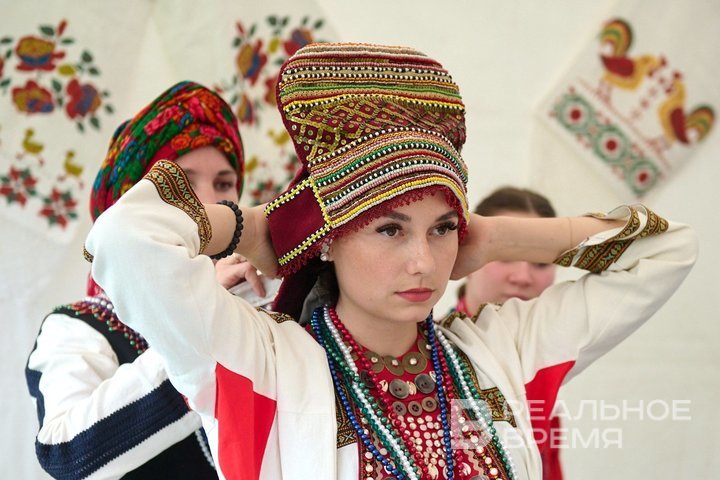
More master classes! Even more!
Master classes were held on the other side of the clearing. The most popular was making curd balls by Albina Faskheyeva — this was the first table where the dear guests were led for a treat.
The children occupied all the other tables where master classes were held on making souvenirs from leather, the Udmurt chest decoration, swaddling dolls, felt brooches with Bashkir ornaments, as well as painting clay toys, wooden matryoshka dolls and souvenir amulets from Mari El. Also, there was a master class in Arabic calligraphy.
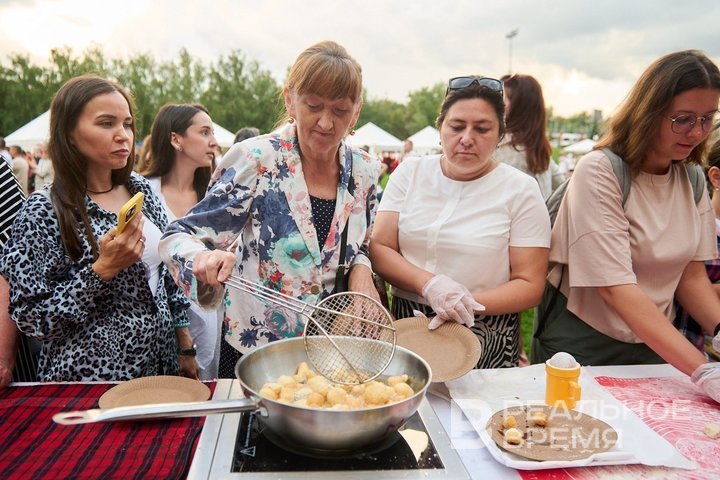
“And how to get to the master class?” asked their parents.
“By appointment, but we are already running out of places even for 19.40...” the masters shrugged.
But there were few people willing to listen to Tatar fairy tales.
Like during the first Tree of Life in July, an exhibition was set up in the middle of the field, but with illustrations not of weddings but of children’s photographs. For example, there was a Kryashen grandmother with her granddaughter, Tatar high school students of the 1920s and young Chuvash people of the late 19th century. The exhibition was compiled from the State Archives catalogue, the collection of the Kazan Ethnographic Museum, the Centre for Russian Folklore and other sources.
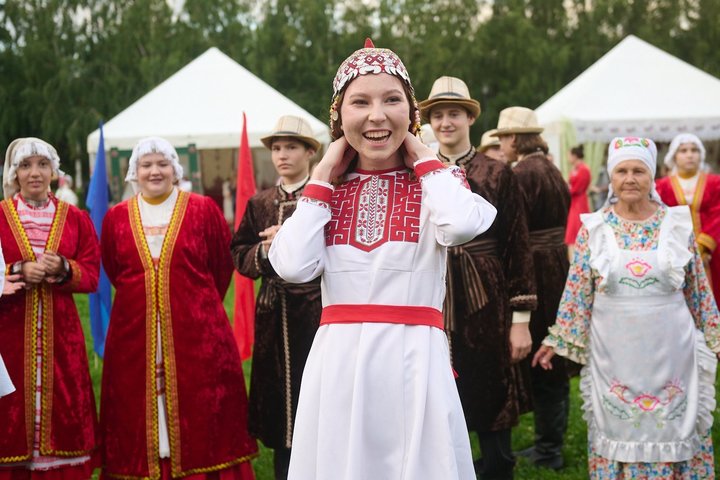
“Perhaps someone will see such a cradle, remember it, take a photo...”
And at the concert, children bands performed such as Rodnichok band from the village of Chuvashskaya Cheboksarka (Novosheshminsk District) or Mordovian Od Oyme led by the soloist of Zakaria Maria Stuklova.
Some sang, as they say, a cappella, others mixed in electronic rhythms. The Pitrau band from the village of Melekes in Tukay District performed songs in both versions.
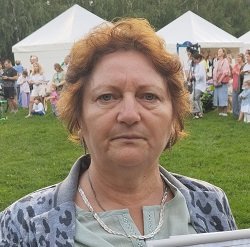
“Of course, one of the goals of Tree of Life is to tell them about these traditions, to show them,” notes Zavgarova. “We cannot talk loudly about preserving traditions here, because in terms of preservation, life makes its own adjustments. Nevertheless, since children are born after wedding, we decided to show the rituals associated with the birth of firstborns. And here the main roles are played not by the father and mother,but by the grandparents on both sides. Each nation has its own rituals. Due to the advent of Sharia, many of them were forgotten, but at the same time we see that some of this is preserved. The rituals are similar, although the lullabies are different, everyone has their own amulets. That is, we show both the differences and the common. There is no question here of who took what from whom, but an indicator of how closely we lived together. Perhaps someone will see such a cradle, remember it, take a photo and then order it.”
